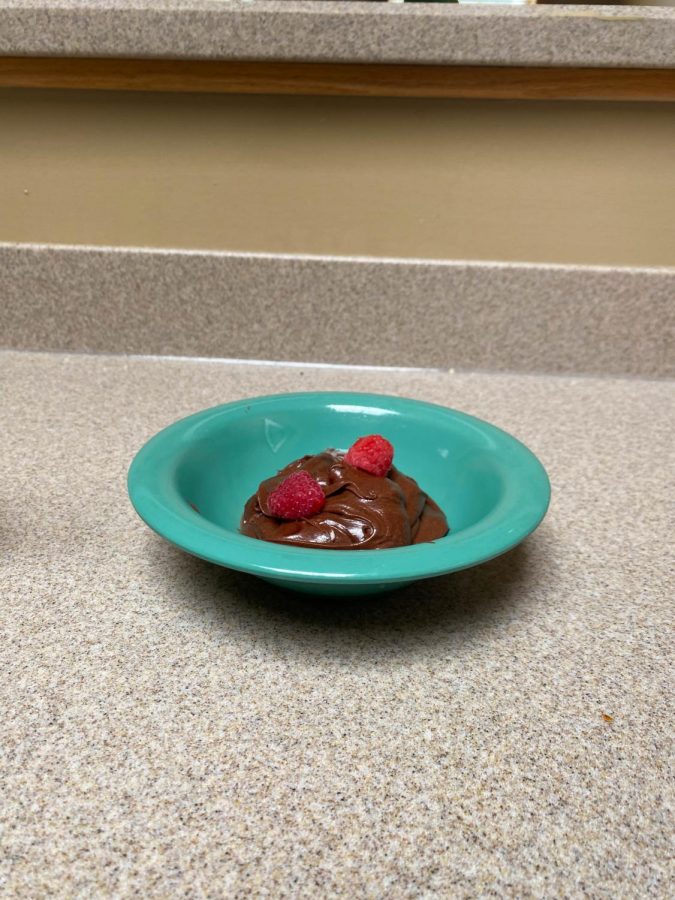Last Friday, The Mac Weekly had a smoke-filled night that can be traced back to a batch of amazing meatballs. Headline puns aside, this is an important public service announcement about smoke in the kitchen. I’ll tell the story and follow up with some tips for a smoky kitchen.
The Mac Weekly had a Garden Party last week. Nothing too fancy, just a chance to mingle over some choice snacks. Among those choice snacks were a batch of spiced turkey meatballs. Our Editors-in-Chief, Anna and Sophie, purchased pre-spiced and mushed turkey for the balling.
Recently I’ve gotten a little kitchen-cocky and stepped up to help ball meat. As it turns out, I’m not a particularly talented baller (sick moves on the court aside), so Anna put me on pan duty. After melting an eighth of a stick of butter (“I really love butter,” she explained) she let me take over. My duties included flipping and monitoring the meatballs.
The meatballs took about 20 minutes to cook. And during that time, I felt a change in the air.
I started sneezing and tearing up. Sophie’s housemates cleared out of the kitchen. I walked out of the kitchen and my world brightened, as if the kitchen air were murky. At that point Sophie walked in and observed, “Oh my god, it’s so smoky in here.”
The meatballs were creating copious amounts of smoke. So much that conditions hardly improved with the fan on.
Sophie and I sought a root cause. Butter doesn’t start smoking until about 275 degrees, so it seemed unlikely. Sophie posited the red pepper flakes were to blame, citing a similar mishap when her housemate’s boyfriend cooked dried red pepper flakes. Now a quick google of “smoking and red pepper flakes” reveals some less than relevant, not so safe for work information, so I cannot confirm this theory.
To see whether it was the flakes, Sophie used vegetable oil for a follow up batch. Not only did it keep things kosher for passover, but we were sure the stove top was not reaching the 400 degree smoke point of vegetable oil. We also covered the pan to keep the smoke flow to a minimum.
It definitely seemed the red pepper flakes were to blame. It wasn’t a perfect control, but we couldn’t find another cause.
We also learned that if things get smoky, don’t trap the smoke only to let it out in one shot at the end. That last point is pretty important. All we got was one major blast of smoke and we could almost hear the fans slowing as the smoke filled the air. Tears in my eyes, I brought out the last batch of meatballs and found a supportive group of eaters.
A note to you eaters out there: positive reviews can make up for most kitchen-side suffering. Third degree burns, scalding, sliced fingers, or other culinary mutilations are worth a consumer’s praise. Exaggeration aside, staff member appreciation is next best thing to workman’s comp for the scratchy throat I have five days after the smoking incident. And given recent budget tightening by the FAC, workman’s comp is a bit of a pipe dream.
But I digress. The main point of this story is talking about smoking in the kitchen. Here’s a list of important notes:
1) First and foremost, don’t breathe in smoke. Honestly, this is huge. Kitchen smoke can get very greasy.
2) Know the smoke point of what you’re cooking. Like most kitchen faux pas, anticipation can go a long way. Most oils have a predictable smoke point, which is the temperature at which point oils will start smoking. Keep that in mind to prepare for possible smog.
3) Turn on your fan if you near the smoke point. If you know that you are approaching the smoke point: turn the fan on. If you’re worried you might: turn it on. If there is an outside chance that there will be smoke: turn it on. Even if there is no smoke, it’s a nice breeze while bent over the oven.
4) Make sure your kitchen is well-ventilated. Again, pretty important and something you may want to take note of as you move into apartments. Student rental ventilation is generally poor. It is not out of the question to discuss this with your landlord. If anything, they will want to avoid long-term smoke damage.
5) Always know where your smoke detectors are. A smoky kitchen experiment can turn this necessary household appliance into a nuisance. Try to divert smoke as best as possible. In my house, we close doors to rooms with smoke detectors and blow smoke away.





Megan Lawrence • Sep 11, 2019 at 3:26 pm
WONDERFUL Post.thanks for share..more wait .. …
Karen Parr • Sep 10, 2019 at 9:43 am
Hello Dear, are you truly visiting this web page on a regular basis, if so afterward you will definitely obtain nice experience.
Rachel Howard • Sep 7, 2019 at 12:55 pm
This blog was… how do I say it? Relevant!! Finally I’ve found something that helped me. Cheers!